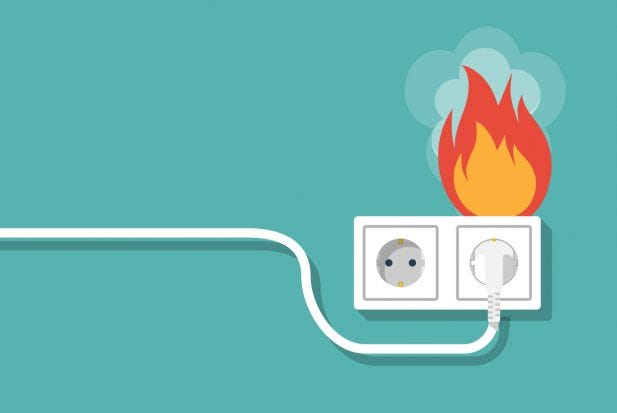The Environmental Impact of Blockchain: Innovation vs. Sustainability
Written on
The Environmental Impact of Blockchain
In today's digital landscape, blockchain technology stands as a revolutionary force, reshaping various sectors from finance to logistics. However, alongside these advancements, it is essential to assess the environmental implications, particularly regarding energy use and sustainability. This article delves into the ecological effects of blockchain, emphasizing its energy demands and the innovative solutions emerging for a more sustainable future.

The Energy Consumption Challenge
Central to blockchain, particularly in systems like Bitcoin, is a process known as "Mining." This operation is highly resource-intensive, requiring substantial electrical power.
According to the Cambridge Bitcoin Electricity Consumption Index, the annual energy usage of Bitcoin is on par with that of entire nations, including Sweden and Malaysia.
Why Is Blockchain's Energy Use So High?
The significant energy consumption primarily stems from the 'Proof of Work' (PoW) consensus mechanism prevalent in many blockchain networks. This method entails solving complex mathematical challenges to authenticate transactions and append new blocks to the blockchain. The architecture of PoW necessitates a vast number of computers competing to solve these puzzles, which dramatically escalates energy consumption.

Environmental Implications
The considerable energy demands bring forth serious environmental concerns. A substantial portion of the electricity utilized for mining is sourced from non-renewable energy, exacerbating carbon emissions and contributing to climate change. This reality has ignited discussions among policymakers, environmental advocates, and technologists regarding the sustainability of blockchain.
Emerging Solutions for a Sustainable Blockchain
Transitioning to More Energy-Efficient Consensus Mechanisms: Alternatives to PoW, such as 'Proof of Stake' (PoS), are increasingly gaining attention. PoS diminishes the computational effort required for block and transaction verification, resulting in a significant reduction in energy usage. Ethereum's anticipated shift to PoS exemplifies this trend.
Utilizing Renewable Energy: Several blockchain initiatives are now harnessing renewable energy sources for their mining operations. By leveraging solar, wind, and hydroelectric power, these ventures aim to lessen their environmental footprint.
Carbon Offsetting: Some blockchain firms are investing in carbon credit initiatives to counterbalance their carbon emissions. However, this approach serves more as a temporary fix rather than a comprehensive solution to the fundamental issue of high energy consumption.
Innovative Cooling Methods: Enhancing energy efficiency in cooling mining equipment can also lead to reduced overall energy use. Advanced techniques, such as utilizing naturally cold environments or innovative liquid cooling systems, are under investigation.

Community Engagement and Regulatory Measures
Increasing awareness among blockchain users and developers regarding the environmental impact can foster the adoption of more sustainable practices. Additionally, regulatory frameworks could incentivize greener methodologies within blockchain operations.
Conclusion
Blockchain technology presents vast opportunities, yet its environmental consequences warrant serious consideration. As we advance into a future driven by blockchain, it is crucial to strike a balance between innovation and ecological sustainability.
By adopting energy-efficient practices, leveraging renewable energy, and implementing innovative operational strategies, blockchain can continue to transform industries while preserving our planet's ecological integrity.
The first video titled "How blockchain technologies impact the environment" discusses the significant energy consumption associated with blockchain and its ecological implications.
The second video, "Blockchain: Societal Impact," explores the broader societal effects of blockchain technology and its potential to drive sustainability.
Finally
I’m Austin Isaacs, a recent addition to StartQuick Tech as a tech blog writer specializing in Blockchain, Cloud, and Artificial Intelligence. I hope this information proves helpful, and if you're interested in topics related to Cloud, DevOps, automation, programming, and technology, please consider following us. Your feedback is always valued, and I appreciate your support!
Thank you, Austin@NZ